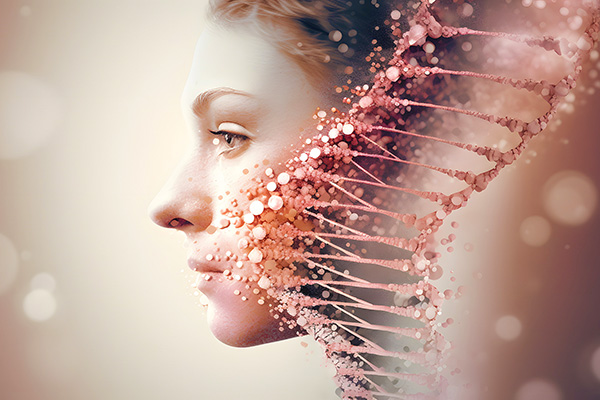anxiety
The Miracle Power Of Divine Timing
 Patience is considered a virtue, something that makes us better people. But it’s so much more than that — it’s a spiritual principle that can truly transform your life for the better.
Patience is considered a virtue, something that makes us better people. But it’s so much more than that — it’s a spiritual principle that can truly transform your life for the better.
In today’s fast-paced, click-now world, where everything is at our fingertips, it can seem a real struggle to practice patience. But being patient isn’t just about waiting. It’s about how you wait.
It’s about slowing down, taking a deep breath, and letting go of the need to control everything. Patience is not about being passive or giving up; it’s about trusting the timing of the universe and going with the flow.
Everything in life happens exactly when it’s supposed to, even if it doesn’t feel that way in the moment. There’s always a bigger plan at play — one that we co-create with the universe through our thoughts, intentions and actions. When you trust this process,you soon discover that even setbacks and obstacles are actually stepping stones.
When things don’t go as planned, it’s easy to get frustrated and think that nothing is working out. But often what feels like a “no” or a delay is actually the universe saying, “Hang in there, I’ve got something better for you. Patience is about believing that everything will eventually make sense, even if you can’t see it now.
The problem with impatience is that it upsets everything. It’s like trying to push a door that’s supposed to pull — it just creates resistance. When we’re impatient, relationships can crack under pressure. Work can feel unstable or hard to pin down. Money problems seem bigger and harder to solve. Impatience feeds frustration, and frustration can create an energy block that pushes the good stuff away.
How To ‘Face Everything And Rise’ (F.E.A.R.)
 It’s okay to feel afraid sometimes – some fear responses are a natural and vital part of our built-in self-protection system. Rooted in our primal survival instincts, fear helps us identify and respond to real threats, such as a raging fire or a dangerous wild animal.
It’s okay to feel afraid sometimes – some fear responses are a natural and vital part of our built-in self-protection system. Rooted in our primal survival instincts, fear helps us identify and respond to real threats, such as a raging fire or a dangerous wild animal.
Survival fear arises in response to immediate, tangible threats to our safety or well-being. It’s a necessary, life-preserving mechanism based on objective, real-world risks that ensure our survival. By activating the body’s fight-or-flight response, it enables us to act quickly and stay safe.
But not all fears are instinctual, nor do they serve our highest good. Irrational fears arise from societal conditioning, cultural expectations, false beliefs, past traumas, or imagined scenarios. These fears are learned or imagined, not instinctual.
Unlike survival fear, irrational fears reflect internalized doubts, imaginery threats and false narratives that serve no protective function at all. Instead, they just interfere with our personal growth, decision-making, and well-being.
Conditioned fears are typically exaggerated or irrational, existing more in the mind than in reality. Examples include fear of failure, fear of rejection, or fear of not living up to social standards. Self-limiting fears can trap us in cycles of self-doubt and hesitation, limiting our ability to take risks, grow, and live wholeheartedly.
To live our best lives, we must learn to recognize these irrational fears, challenge their validity, and prevent them from taking control of our life and well-being. By stepping back and evaluating the source of our fears, we can release what no longer serves us, reclaim our joy, and unlock our full potential.
The Past Life Memories Embedded In Your Cells
 Have you ever met someone and had the feeling that you had met them before, or that they were somehow a kindred spirit?
Have you ever met someone and had the feeling that you had met them before, or that they were somehow a kindred spirit?
Have you ever tried unfamiliar foods that suddenly seemed very familiar or evoked feelings of nostalgia? Places that seemed very familiar even though you had never been there before?
Have you ever smelled a vaguely familiar scent that made you feel a certain way, or took you back to a distant time or place, not in this lifetime, but somewhere, sometime, long, long ago?
These experiences are more than coincidences. They are manifestations of your cellular memories.
The human body is made up of billions of cells that communicate with each other. Each of these cells is a living, breathing, feeling organism and carries energy imprints of all our memories and experiences in our current life as well as our past lives.
Every memory and experience from every life we have ever lived is recorded and stored in the Akashic Records – the cosmic library where the history of every soul’s journey is archived. It is a complete history of everything you have ever said, thought, felt and done throughout your soul’s entire growth journey.
This cosmic collection of past life memories and experiences is embedded in the cellular memory of your new physical body when you are reborn. The cells of your current body therefore carry many energy imprints, not only of your ancestral genetics, but also of your past life memories and experiences, and they affect your life, health and well-being on a daily basis, including your relationships.
Forgiving Yourself Is A Spiritual Necessity
 Self-forgiveness is more than just a mental health recommendation – it is a spiritual necessity. It is vital for the spiritually aware person to release guilt, self-blame, and self-criticism, because forgiving oneself is crucial to both personal well-being and spiritual progress. It allows for healing, growth, and the ability to live a more fulfilling and harmonious life.
Self-forgiveness is more than just a mental health recommendation – it is a spiritual necessity. It is vital for the spiritually aware person to release guilt, self-blame, and self-criticism, because forgiving oneself is crucial to both personal well-being and spiritual progress. It allows for healing, growth, and the ability to live a more fulfilling and harmonious life.
Failure to forgive ourselves can have profound personal and spiritual side effects. Carrying guilt and self-blame leads to chronic emotional distress and contributes to anxiety, depression, and low self-esteem. Over time, this can manifest itself in physical symptoms such as headaches, fatigue, or even chronic illness.
A lack of self-forgiveness undermines self-worth and hinders personal growth and development. Difficulty forgiving yourself also strains your relationships with others, as it can lead to withdrawal, defensiveness, or projecting negativity onto those around you. Without forgiveness, our negative feelings toward ourselves can fester and damage even our most cherished relationships with our loved ones and friends.
Holding onto guilt and self-blame blocks the flow of positive energy through the chakras and hinders spiritual well-being. For example, guilt often stagnates in the solar plexus chakra, affecting one’s sense of personal power. Self-forgiveness is essential for clearing such blockages in the energy field.
Forgiveness is also essential to achieving inner peace and harmony. Without it, one can experience constant inner turmoil and restlessness. When we hold onto guilt, shame, or self-blame, parts of our spiritual essence or inner divinity are suppressed or disconnected. It causes separation from one’s spiritual path or a sense of disconnection from spirit and the divine.
The Spiritual Wisdom Of Letting Go
 I sometimes do readings for clients who feel they have to control absolutely everything in their lives. They are rarely calm, rarely happy, always frazzled. There’s a constant tension around them, a palpable anxiety, as if they’re always one step away from a meltdown, or even a complete breakdown.
I sometimes do readings for clients who feel they have to control absolutely everything in their lives. They are rarely calm, rarely happy, always frazzled. There’s a constant tension around them, a palpable anxiety, as if they’re always one step away from a meltdown, or even a complete breakdown.
Many of us have experienced this feeling or seen it in others – the compulsion to control every outcome, every detail, believing that by sheer force of will we can make life bend to our wishes.
But here’s the thing: life has a way of moving on its own, whether we like it or not. And often, the more we try to grasp and hold on, the more things slip out of our control.
A song that often comes to mind when I think about this is the song Let It Be by the Beatles. Let it be, let it be. There will be an answer, let it be. This timeless classic is a simple yet powerful reminder of the peace that can come from stopping to resist and simply allowing things to unfold as they are meant to.
Letting go is not about giving up; it’s about trusting that life has a rhythm, a universal flow, and when we align ourselves with it, life becomes infinitely more peaceful and enjoyable.
In my work as a psychic consultant, I’ve found that those who feel the need to control every aspect of their lives often carry a heavy burden of stress. They struggle to find joy because they are too preoccupied with micromanaging every little detail. Life becomes a series of hurdles and challenges, and instead of going with the flow, they are constantly swimming against the current. It’s exhausting and soul-destroying.
Reconnecting With Your Inner Light
 These days, it’s easy to feel lost, anxious, or just plain drained. We juggle the pressure to succeed, increasing isolation, endless app notifications, and even a creeping sense of loneliness or hopelessness.
These days, it’s easy to feel lost, anxious, or just plain drained. We juggle the pressure to succeed, increasing isolation, endless app notifications, and even a creeping sense of loneliness or hopelessness.
It’s no wonder so many of us feel overwhelmed and disconnected from our true selves and the deeper source of wisdom within that illuminates our lives. Instead of feeling alive and vibrant, for many people it’s just a matter of getting through the day.
But here’s the good news: There is a way out of this gray fog, and it doesn’t involve a fancy retreat or running away to join the circus.
It’s about reconnecting with the light within you-the spark of divinity that’s always been there. Once you tap into that, everything changes. You begin to feel grounded, peaceful and purposeful. Life becomes richer, more joyful, and you’ll find yourself smiling a lot more!
The spiritual concept of “light” is central to many Eastern wisdom traditions. In Hinduism, for example, “light” symbolizes divine knowledge, truth, and the divine self (atman). The famous Sanskrit phrase “tamaso mā jyotir gamaya” (lead me from darkness to light) from the Brihadaranyaka Upanishad refers to our innate desire for enlightenment and spiritual knowledge.
The concept of enlightenment (bodhi), metaphorically symbolized by light, is also central to Buddhism. In achieving enlightenment, one is said to attain wisdom and freedom from the darkness of ignorance.
